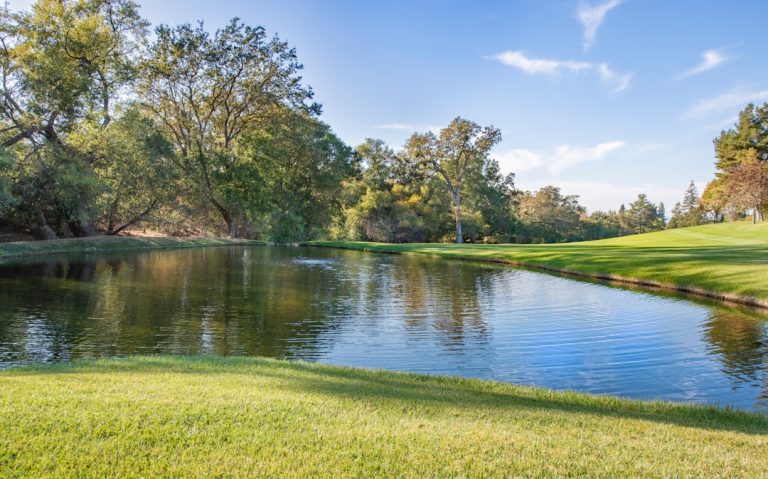
American culture is a rich tapestry woven from the threads of various traditions, beliefs, and practices that have evolved over centuries. It is a culture characterized by its dynamism and adaptability, reflecting the diverse backgrounds of its people.
This cultural amalgamation has resulted in a unique identity that is both distinctly American and universally relatable. At its core, American culture encompasses a wide array of elements, including language, art, music, cuisine, and social norms. The values of freedom, individualism, and democracy are deeply embedded in the American psyche, influencing everything from political discourse to personal relationships.
As a nation built on the principles of liberty and equality, American culture often emphasizes the importance of self-expression and innovation.
Key Takeaways
- American culture is a diverse and influential force in the world, shaped by a variety of regional differences and technological advancements.
- American cultural icons and traditions, such as Hollywood and Thanksgiving, have had a significant impact on global culture.
- The evolution of American culture has been marked by changes in music, fashion, and social movements, reflecting the country’s dynamic history.
- Regional differences in American culture, from the East Coast to the West Coast, contribute to the rich tapestry of traditions and customs across the country.
- The impact of technology on American culture has been profound, shaping everything from communication and entertainment to work and social interactions. The future of American culture will continue to be influenced by these factors, as well as by ongoing social and political developments.
The Diversity of American Culture
Linguistic Diversity
According to the U.S. Census Bureau, over 300 languages are spoken across the country, brought by immigrants. From Spanish-speaking communities in the Southwest to vibrant Asian enclaves in cities like San Francisco and New York, this linguistic diversity enriches the American experience and fosters cross-cultural interactions.
Cultural Festivals and Celebrations
Cultural festivals and events such as Diwali in Indian communities, Lunar New Year in Chinese neighborhoods, and Juneteenth celebrations across the nation highlight the unique traditions that coexist within American society. These events not only honor specific cultural heritages but also promote understanding and appreciation among different groups.
American Cuisine
The blending of various culinary traditions has also given rise to a distinctive American cuisine that includes everything from barbecue and soul food to sushi and tacos, showcasing how diverse influences can create something entirely new.
The Influence of American Culture on the World

American culture has had a significant impact on global culture, shaping trends in music, fashion, film, and technology. The proliferation of Hollywood films has made American cinema a dominant force worldwide, influencing storytelling techniques and popular culture in numerous countries. Iconic films such as “Star Wars,” “Titanic,” and “The Godfather” have transcended borders, becoming cultural touchstones that resonate with audiences around the globe.
This cinematic influence extends beyond entertainment; it often shapes perceptions of American values and lifestyles. Music is another area where American culture has left an indelible mark on the world. Genres such as jazz, rock ‘n’ roll, hip-hop, and country have originated in the United States and have since spread internationally.
Artists like Louis Armstrong, Elvis Presley, and Beyoncé have not only achieved fame in America but have also garnered international acclaim, influencing musicians across continents. The global popularity of American music often serves as a vehicle for cultural exchange, allowing artists from different backgrounds to collaborate and innovate while drawing inspiration from one another.
The Evolution of American Culture
| Decade | Key Events | Impact on Culture |
|---|---|---|
| 1950s | Rock and roll music, rise of television | Youth culture, consumerism |
| 1960s | Civil rights movement, counterculture | Social change, protest movements |
| 1970s | Disco music, rise of feminism | Individualism, gender equality |
| 1980s | MTV, Reaganomics | Materialism, pop culture |
| 1990s | Internet boom, multiculturalism | Globalization, diversity |
American culture is not static; it has undergone significant transformations over time in response to social changes, technological advancements, and historical events. The Civil Rights Movement of the 1960s marked a pivotal moment in American history that reshaped cultural norms surrounding race and equality. Figures like Martin Luther King Jr.
and Rosa Parks became symbols of resistance against systemic injustice, inspiring a generation to advocate for civil rights. This movement not only altered the legal landscape but also influenced art, literature, and music, giving rise to powerful expressions of social commentary. The advent of technology has also played a crucial role in the evolution of American culture.
The rise of the internet and social media platforms has transformed how people communicate and share ideas. Cultural phenomena such as memes, viral videos, and online challenges have emerged as new forms of expression that reflect contemporary societal values and concerns. Additionally, technology has facilitated greater access to diverse cultural content, allowing individuals to explore traditions from around the world without leaving their homes.
This interconnectedness has fostered a sense of global citizenship while simultaneously challenging traditional notions of cultural identity.
American Cultural Icons and Traditions
American culture is replete with iconic figures and traditions that have become synonymous with national identity. From historical figures like George Washington and Abraham Lincoln to contemporary icons such as Oprah Winfrey and Steve Jobs, these individuals have shaped the cultural narrative through their contributions to politics, media, business, and social change. Their stories often embody the quintessential American spirit of perseverance and innovation.
Traditions such as Thanksgiving exemplify the cultural values of gratitude and community that are central to American life. Celebrated on the fourth Thursday of November, Thanksgiving brings families together to share a meal that typically includes turkey, stuffing, and pumpkin pie. This holiday not only reflects culinary traditions but also serves as an opportunity for reflection on shared history and values.
Other traditions like Independence Day celebrations with fireworks and parades highlight national pride and collective memory, reinforcing a sense of belonging among Americans.
Regional Differences in American Culture

The vast geographical expanse of the United States gives rise to distinct regional cultures that reflect local histories, climates, and demographics. The Northeast is often characterized by its historical significance and urban centers like New York City and Boston, where cultural institutions such as museums and theaters thrive. In contrast, the South is known for its rich musical heritage—home to blues, country music, and jazz—as well as its unique culinary traditions that include dishes like gumbo and fried chicken.
The Midwest is often associated with agricultural roots and a strong sense of community. Festivals celebrating harvests or local crafts are common in this region, showcasing the importance of local produce and craftsmanship. Meanwhile, the West Coast is recognized for its progressive values and innovation-driven economy, particularly in technology hubs like Silicon Valley.
Each region contributes its own flavor to the broader American culture while maintaining distinct identities that reflect local customs and lifestyles.
The Impact of Technology on American Culture
Technology has profoundly influenced American culture in myriad ways, reshaping how individuals interact with one another and consume information. The rise of social media platforms such as Facebook, Twitter, Instagram, and TikTok has transformed communication patterns among Americans. These platforms allow for instantaneous sharing of thoughts, experiences, and creative content while fostering communities around shared interests or causes.
However, this shift has also raised questions about privacy, mental health, and the authenticity of online interactions. Moreover, technology has revolutionized entertainment consumption patterns. Streaming services like Netflix and Hulu have changed how Americans access films and television shows, leading to binge-watching culture where entire seasons are consumed in one sitting.
This shift has altered traditional viewing habits while giving rise to new forms of storytelling that cater to diverse audiences. Additionally, video games have emerged as a dominant form of entertainment among younger generations, creating immersive experiences that blend art with technology.
The Future of American Culture
As America continues to evolve in an increasingly interconnected world, its culture will undoubtedly adapt to new challenges and opportunities. The ongoing dialogue surrounding social justice issues—such as racial equality, gender rights, and environmental sustainability—will likely shape cultural narratives moving forward. Activism through art—whether it be music that addresses social issues or visual art that challenges societal norms—will continue to play a vital role in reflecting contemporary concerns.
Furthermore, globalization will further influence American culture as it becomes increasingly intertwined with global trends while maintaining its unique identity. The blending of cultures through immigration will continue to enrich the American experience while fostering innovation across various fields such as technology, art, and cuisine. As new generations emerge with their own perspectives shaped by diverse influences, American culture will remain a dynamic entity—one that reflects both its historical roots and its aspirations for a more inclusive future.
If you’re interested in exploring more dialogues on various topics, you may want to check out the article on dealing with insomnia. This article provides a conversation between two individuals discussing strategies for coping with sleepless nights. It offers insights and tips that may be helpful for anyone struggling with insomnia.
FAQs
What are USA dialogues?
USA dialogues are a series of discussions and conversations that aim to address various social, political, and cultural issues in the United States. These dialogues provide a platform for individuals to engage in constructive and open-minded conversations about important topics.
Who participates in USA dialogues?
Participants in USA dialogues can include individuals from diverse backgrounds, including community members, activists, scholars, policymakers, and other stakeholders. The goal is to bring together a wide range of perspectives to foster meaningful dialogue and understanding.
What are the goals of USA dialogues?
The goals of USA dialogues include promoting understanding, empathy, and collaboration among participants, as well as fostering positive social change. These dialogues aim to address complex issues facing the United States and work towards finding solutions and common ground.
How are USA dialogues organized?
USA dialogues can be organized in various formats, including town hall meetings, panel discussions, workshops, and online forums. These events may be facilitated by trained moderators or facilitators to ensure that conversations remain respectful and productive.
Why are USA dialogues important?
USA dialogues are important because they provide a platform for individuals to engage in meaningful conversations about important issues. By fostering open dialogue and understanding, these discussions can help bridge divides, build empathy, and work towards positive social change.



